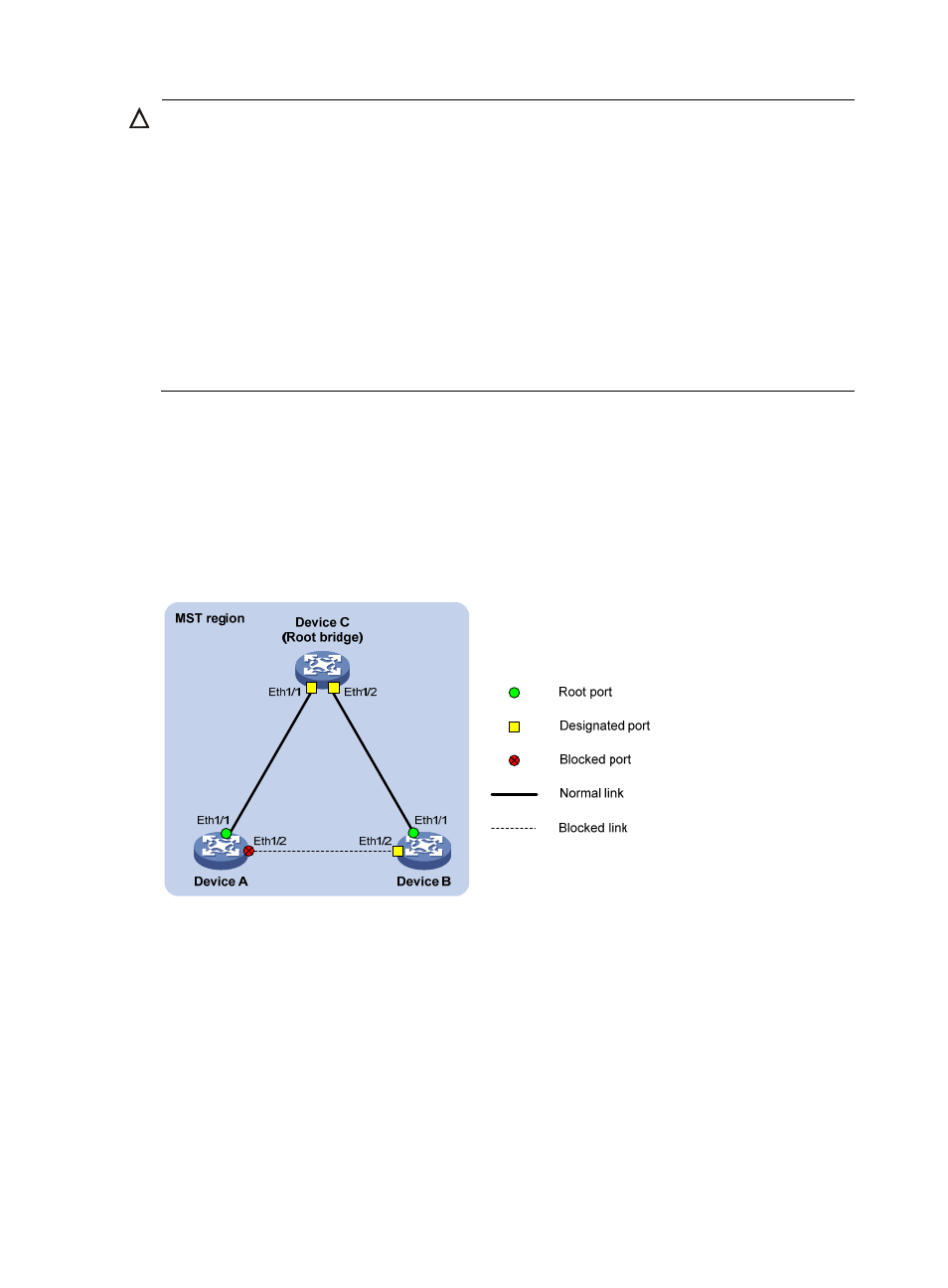Digest snooping configuration example – H3C Technologies H3C SecPath F1000-E User Manual
Page 123

98
CAUTION:
•
With the Digest Snooping feature enabled, comparison of configuration digest is not needed for
in-the-same-region check, so the VLAN-to-instance mappings must be the same on associated ports.
•
With global Digest Snooping enabled, modification of VLAN-to-instance mappings and removing of
the current region configuration using the undo stp region-configuration command are not allowed.
You can only modify the region name and revision level.
•
To make Digest Snooping take effect, you must enable it both globally and on associated ports. To make
the configuration effective on all configured ports and while reducing impact on the network, enable
Digest Snooping on all associated ports first and then globally.
•
To prevent loops, do not enable Digest Snooping on MST region edge ports.
•
H3C recommends you to enable Digest Snooping first and then the spanning tree feature. To avoid
traffic interruption, do not configure Digest Snooping when the network is already working well.
Digest Snooping configuration example
1.
Network requirements
As shown in
, Device A and Device B connect to Device C, which is a third-party device.
All these devices are in the same region.
Enable Digest Snooping on Device A's and Device B's ports that connect to Device C, so that the
three devices can communicate with one another.
Figure 53 Network diagram
2.
Configuration procedure
# Enable Digest Snooping on Ethernet 1/1 of Device A and enable global Digest Snooping on
Device A.
[DeviceA] interface ethernet 1/1
[DeviceA-Ethernet1/1] stp config-digest-snooping
[DeviceA-Ethernet1/1] quit
[DeviceA] stp config-digest-snooping
# Enable Digest Snooping on Ethernet 1/1 of Device B and enable global Digest Snooping on
Device B.
- H3C SecPath F5000-A5 Firewall H3C SecPath F1000-A-EI H3C SecPath F1000-E-SI H3C SecPath F1000-S-AI H3C SecPath F5000-S Firewall H3C SecPath F5000-C Firewall H3C SecPath F100-C-SI H3C SecPath F1000-C-SI H3C SecPath F100-A-SI H3C SecBlade FW Cards H3C SecBlade FW Enhanced Cards H3C SecPath U200-A U200-M U200-S H3C SecPath U200-CA U200-CM U200-CS H3C SecBlade LB Cards H3C SecPath L1000-A Load Balancer
